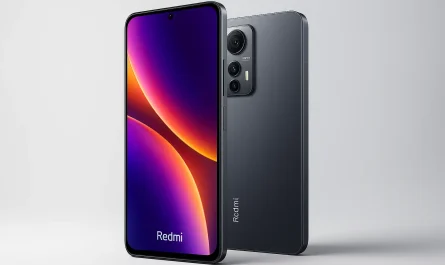Introduction
Choosing the best laptop can be overwhelming with so many options available in the market. Whether you’re a casual user, student, business professional, content creator, gamer, developer, or power user, selecting the right specifications ensures the best performance for your needs.
In this guide, we’ll break down the essential components you should consider when buying a laptop, including the processor, RAM, storage, display, graphics card, battery life, connectivity, and more.
Table of Contents
Key Factors to Consider When Buying a Laptop
1. Processor (CPU) – The Brain of Your Laptop
The processor determines the speed and efficiency of your laptop. Here’s what you need to know:
| User Type | Recommended CPU |
|---|---|
| Casual Users | Intel Core i3 / AMD Ryzen 3 |
| Students & Business Users | Intel Core i5 / AMD Ryzen 5 |
| Content Creators & Developers | Intel Core i7 / AMD Ryzen 7 |
| Gamers & Power Users | Intel Core i9 / AMD Ryzen 9 |
| Scientists & Engineers | Intel Core i9 / AMD Ryzen 9 / Apple M-series |
| Security & Ethical Hackers | Intel Core i7 / Ryzen 7 / Apple M-series |
Key Considerations:
- Clock Speed: Higher GHz means faster performance.
- Cores & Threads: More cores allow better multitasking.
- Generation: Prefer the latest generation (e.g., Intel 13th/14th Gen or AMD 7000 series).
- Power Efficiency: ARM-based chips (Apple M-series, Snapdragon) offer better battery life.
Processor Series: U, H, P, HX, G, X, F, and Ryzen Series Explained
Different processor series cater to different needs:
| Series | Description |
|---|---|
| U-Series | Ultra-low power, best for battery life (e.g., Intel Core i5-1335U). Ideal for students and business users. |
| H-Series | High-performance, great for gaming and content creation (e.g., Intel Core i7-12700H). |
| P-Series | Balanced for power and efficiency, good for power users (e.g., Intel Core i5-1250P). |
| HX-Series | Extreme performance, best for workstation-level tasks and gaming (e.g., Intel Core i9-13900HX). |
| G-Series | Integrated graphics-focused processors (e.g., AMD Ryzen 5 5600G). Ideal for casual users and light gaming. |
| X-Series | High-end desktop-grade processors used in some premium workstations (e.g., AMD Ryzen 9 7950X). |
| F-Series | Lacks integrated graphics, requires a dedicated GPU (e.g., Intel Core i5-12400F). Great for gaming rigs. |
| Ryzen U-Series | Power-efficient, good for everyday tasks (e.g., AMD Ryzen 7 7730U). |
| Ryzen H-Series | High-performance, ideal for gaming and content creation (e.g., AMD Ryzen 9 7945HX). |
| Ryzen HS-Series | Performance-optimized with lower power draw (e.g., AMD Ryzen 7 7840HS). |
| Ryzen X-Series | High-end desktop processors for workstations and power users (e.g., AMD Ryzen 9 7950X). |
Choosing the Right Series:
- For students & office users: U-Series for long battery life.
- For gamers & creators: H-Series or HX-Series for better performance.
- For balanced performance: P-Series offers a middle ground.
- For extreme workloads: HX-Series provides workstation-class power.
- For budget builds & casual users: G-Series is a solid choice.
- For high-end workstations: X-Series provides ultimate desktop performance.
- For users with dedicated GPUs: F-Series saves money by skipping integrated graphics.
2. RAM – The Multitasking Champion
RAM plays a crucial role in performance, especially when handling multiple applications.
| User Type | Recommended RAM |
|---|---|
| Casual Users | 4GB – 8GB |
| Students & Business Users | 8GB – 16GB |
| Content Creators & Developers | 16GB – 32GB |
| Gamers & Power Users | 16GB – 64GB |
| Scientists & Engineers | 32GB – 64GB |
| Security & Ethical Hackers | 16GB – 32GB |
Key Considerations:
- DDR4 vs. DDR5: DDR5 is faster and more efficient.
- Upgradability: Check if you can add more RAM later.
- Frequency (MHz): Higher is better for performance.
3. Storage – SSD vs. HDD
Storage affects your laptop’s speed and capacity.
| User Type | Recommended Storage |
|---|---|
| Casual Users | 256GB SSD |
| Students & Business Users | 512GB SSD |
| Content Creators & Developers | 1TB SSD |
| Gamers & Power Users | 1TB – 2TB SSD |
| Scientists & Engineers | 1TB – 4TB SSD |
| Security & Ethical Hackers | 512GB – 1TB SSD |
Key Considerations:
- SSD (Solid State Drive): Faster and more reliable than HDD.
- NVMe vs. SATA: NVMe SSDs are much faster.
- External Storage: Consider an external HDD/SSD for backups.
4. Display – Resolution, Refresh Rate & Panel Type
The display quality determines your viewing experience.
| Feature | Recommendation |
|---|---|
| Size | 13″ – 15″ for portability, 16″ – 17″ for power users |
| Resolution | FHD (1920×1080) for most users, 4K for creators |
| Refresh Rate | 60Hz (casual), 120Hz+ (gamers) |
| Panel Type | IPS for color accuracy, OLED for deep contrast |
Key Considerations:
- Brightness: 300+ nits for outdoor use.
- Color Accuracy: Look for 100% sRGB or AdobeRGB for creative work.
5. Graphics Card (GPU) – Integrated vs. Dedicated
A powerful GPU is crucial for gaming, video editing, and AI applications.
| User Type | Recommended GPU |
|---|---|
| Casual Users | Integrated Graphics (Intel Iris Xe, AMD Radeon) |
| Students & Business Users | Integrated Graphics |
| Content Creators & Developers | NVIDIA RTX 3060+ or AMD Radeon RX 6000+ |
| Gamers & Power Users | NVIDIA RTX 4060+ or AMD Radeon RX 7000+ |
| Scientists & Engineers | NVIDIA RTX 4090 / Apple M3 Max |
| Security & Ethical Hackers | Integrated or Dedicated GPU depending on workload |
Key Considerations:
- VRAM: 4GB for light gaming, 8GB+ for heavy workloads.
- AI & Machine Learning: NVIDIA RTX series with CUDA support is recommended.
6. Battery Life – Portability vs. Performance
Longer battery life is essential for students, business professionals, and travelers.
| User Type | Recommended Battery Life |
|---|---|
| Casual Users | 6 – 8 hours |
| Students & Business Users | 8 – 12 hours |
| Content Creators & Gamers | 4 – 6 hours |
| Developers & Engineers | 6 – 10 hours |
| Travelers & Digital Nomads | 10+ hours |
Key Considerations:
- Fast Charging: 50% in 30 minutes is ideal.
- Battery Type: Lithium-polymer is preferred.
- Efficiency: Apple M-series and AMD Ryzen chips are power-efficient.
7. Connectivity & Ports
Consider the number and type of ports for accessories.
| Essential Ports | Recommended |
|---|---|
| USB Type-C | Yes (preferably Thunderbolt) |
| HDMI | Yes (for external displays) |
| SD Card Slot | Yes (for photographers and videographers) |
| Ethernet Port | Optional (for stable internet) |
| 3.5mm Audio Jack | Yes |
8. Operating System (OS)
Choose an OS based on your workflow:
- Windows: Best for versatility, gaming, and productivity.
- macOS: Ideal for content creators, developers, and security professionals.
- Linux: Great for programmers, ethical hackers, and engineers.
Conclusion: Choosing the Best Laptop for Your Needs
When selecting a laptop, consider your primary use case, budget, and future-proofing options. Here’s a quick checklist:
✔️ Choose the right CPU, RAM, and Storage for performance.
✔️ Select a display with good resolution and refresh rate.
✔️ Check for a dedicated GPU if needed.
✔️ Ensure good battery life if portability is a concern.
✔️ Look for essential connectivity ports for accessories.
✔️ Pick the right operating system for your workflow.
By carefully evaluating these factors, you’ll find the perfect laptop that meets your needs and enhances your computing experience!




